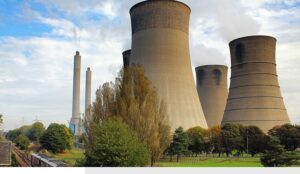A nuclear fusion power station, which will possibly be the first of its kind in the world, is set to be built in West Burton, north Nottinghamshire.
The Department for Business Energy and Industrial Strategy (BEIS) has picked the site between Retford and Gainsborough to host the UK Atomic Energy Authority (UKAEA)’s pioneering prototype fusion power station.

Backers hope it will help lead the UK’s carbon neutral targets. The Atomic Energy Authority has been looking for potential suitable locations for the past couple of years after the Department for Business, Energy and Industrial Strategy (BEIS) announced a £220 million fund to help find a home for the UK’s future Spherical Tokamak for Energy Production (STEP) programme, due for completion in 2040.
Fusion is based on the same physical reactions that power the sun and stars, and could be a source of abundant renewable fuel if made available on a commercial basis.
The Midlands Engine said the announcement was a huge boost to the Midlands’ drive to attract inward investment – with low-carbon energy generation seen as a route to tackle climate and energy crises, and create vital high-paid, high-skilled jobs across the Midlands.
The West Burton site has been used for coal and gas powered electricity generation for decades, and the decision follows Nottinghamshire County Council’s Fossil2Fusion campaign, supported by the Midlands Engine partnership and Energy Research Accelerator. Midlands Enterprise Universities was among those lobbying the Government.
West Burton was one of 15 sites which entered bids in early 2021 to host project. It was chosen from an eventual shortlist of five after more than a year of detailed technical and socio-economic assessment.
If successful, the prototype plant could pave the way to commercial fusion plants producing sustainable, low carbon energy for generations to come.
Midlands Engine chairman Sir John Peace said: “In an area which has long suffered from underinvestment, the site stands to play a crucial role in boosting local and regional economic activity, job creation and productivity.
“The project is more than a power station – it will require an ecosystem of innovation and development and will become a global focus for fusion power.
“This is an unrivalled opportunity to support our levelling up agenda by generating high quality jobs, building a first-class supply chain and further strengthening our regional skills base.
“We look forward to working with the UKAEA to make the project a success, both in solving our energy challenges, and driving green growth across the Midlands and beyond.”
Professor Martin Freer, director of the Energy Research Accelerator, said the site was part of what he called ‘Megawatt Valley’ which had been crucial to the UK’s power generation industry for decades.
He said: “Fusion has the potential to be transformative for the way we produce energy here in the UK.




